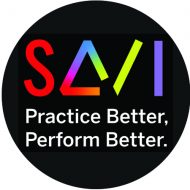Monday, October 5 was one of the more bizarre experiences I’ve had in my years as an educator.
The previous evening, everyone at my school was informed via text message that the FBI had picked up a vague threat on the internet suggesting there would be a violent incident at a Philadelphia-area university around 2pm on Monday afternoon.
Coming as it did just days after the tragedy at Umpqua Community College in Oregon, this threat made everyone in Philadelphia area colleges – teachers, students and staff – feel understandably anxious. The promise of heightened security provided little comfort for the worriers.
Still, I felt compelled to show up for work on Monday morning, terrorist threats be damned. In fact, I was inspired to kick things up a notch sartorially that morning, adding a vintage bow tie and tweed sport coat to my ensemble. As I stood in front of the mirror tying my tie, a Rodgers and Hammerstein tune popped into my head:
Whenever I feel afraid,
I hold my head erect
And whistle a happy tune
So no one will suspect I’m afraid.
While shivering in my shoes,
I strike a careless pose
And whistle a happy tune,
And no one ever knows I’m afraid.
The result of this deception
Is very strange to tell,
For when I fool the people I fear
I fool myself as well!
Though I don’t recall whistling, there was definitely a spring in my step as I strolled up the sidewalk to my school that morning, and even though more than half my students were absent, I tackled my morning class with more than my usual gusto.
Make believe you’re brave
And the trick will take you far.
You may be as brave
As you make believe you are.
Regrettably, many of my students succumbed to their fears and stayed home on what proved to be a beautiful fall day and a splendid opportunity to learn something new. The day passed without incident, I am relieved to report, but please don’t get the mistaken notion that I am passing judgment on those who felt too skittish to venture out on that October afternoon. We live in profoundly unsettling times, and some deeply troubled individuals have committed heinous crimes in recent months that have claimed the lives of far too many innocent Americans. Fear is a logical and appropriate response to these sorts of occurrences.
Still, it’s not too late to learn something from that day’s experience, and it strikes me that this is a fine opportunity to consider the value of the outside-in approach to performance, the one that Oscar Hammerstein (writing for the character Anne Leonowens in The King and I) refers to when he suggests that one can “fool [one]self” into feeling brave under scary conditions, or choosing to feel one way rather than another. Even though the “outside-in” approach seems to be held in low esteem among certain educators, my experience in the training of singing actors has taught me that the relationship between inner feeling and external behavior is a two-way street, and that the SAVI singing actor is able to approach the creation of a performance working both inside-out and outside-in.
Stanislavski referred to acting as a “psychophysical” phenomenon, as Bella Merlin describes it in this passage from her 2007 book The Complete Stanislavski Toolkit: “The foundation of a decent actor training as far as Stanislavski was concerned was PSYCHO-PHYSICALITY. … [a term which] basically alludes to the fact that your body and your psyche are trained together to achieve a sort of inner-outer co-ordination. This means that who you experience internally is immediately translated into an outer expression, and (conversely) what your body manifests physically has a direct and acknowledged affect on your psychological landscape.”
In her famous TED talk (28 million views as of this this writing), Amy Cuddy offers scientific evidence that your body language shapes who you are, and that you can change how you feel by changing your body language. “Power posing” – standing in a position of confidence, even when you don’t feel confident – can affect testosterone and cortisol levels in the brain, resulting in a greater feeling of confidence and diminished feelings of anxiety. We smile when we feel happy, but forcing ourselves to smile can actually make us feel happier. This social psychologist offers research data to corroborate Stanislavski’s notion of psycho-physicality and how it can be made to work, not just for actors, but for anybody.
“You can be as brave as you make believe you are,” Anna reassures her son when she sings the song Whistle A Happy Tune to him. In the world of make believe, we can all be brave, or fearful, or smart and clever or tender and foolish or whatever. Sometimes, though, it helps to “fake it till you become it,” and that’s Amy Cuddy’s advice.
